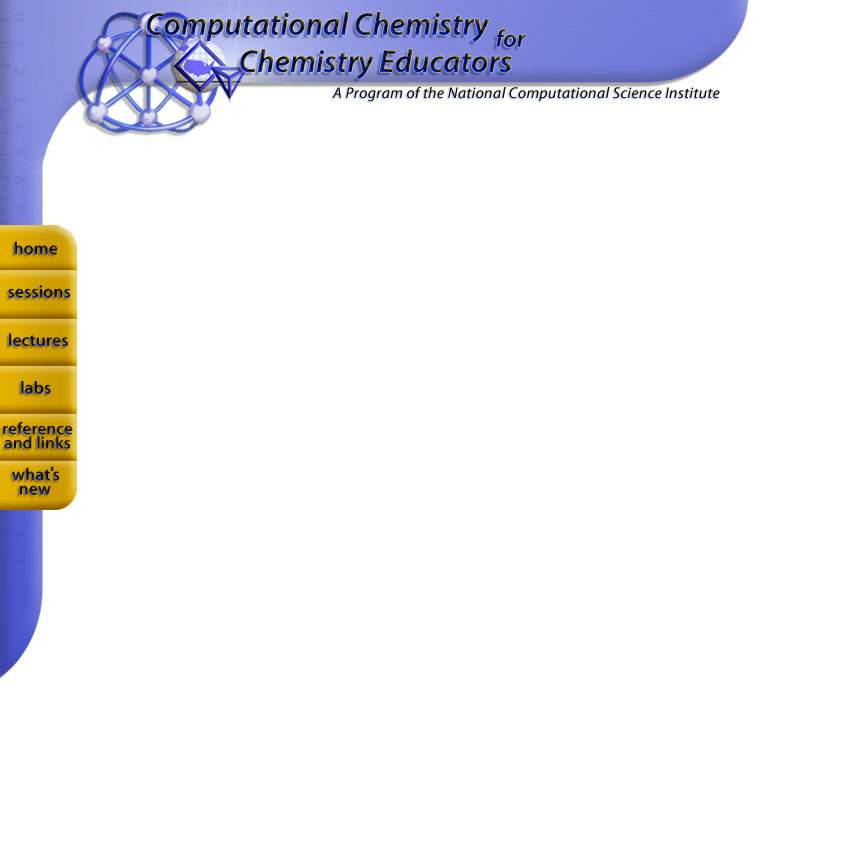

Upon completing the lectures and laboratory exercises, educators should have the knowledge to provide substantial answers to the following questions:
One premise of this course is that educators can and should understand how research chemists make use of molecular modeling as an aid in their research endeavors. Educators, like scientists, need to learn science by actually doing science. The main goal of this course is to provide educators with the opportunity to use molecular modeling to solve interesting and relevant problems. Towards this goal, participants are provided with a variety of experiments, using a variety of popular software.
The sharing of knowledge is one of the pillars that modern science rests on. Those who complete this course are encouraged to create and share educational materials that can benefit the community of chemistry educators as a whole. These materials may be created for use in lecture, laboratory, or student self-study. A Web-based archive of proven molecular modeling activities will be the end result.